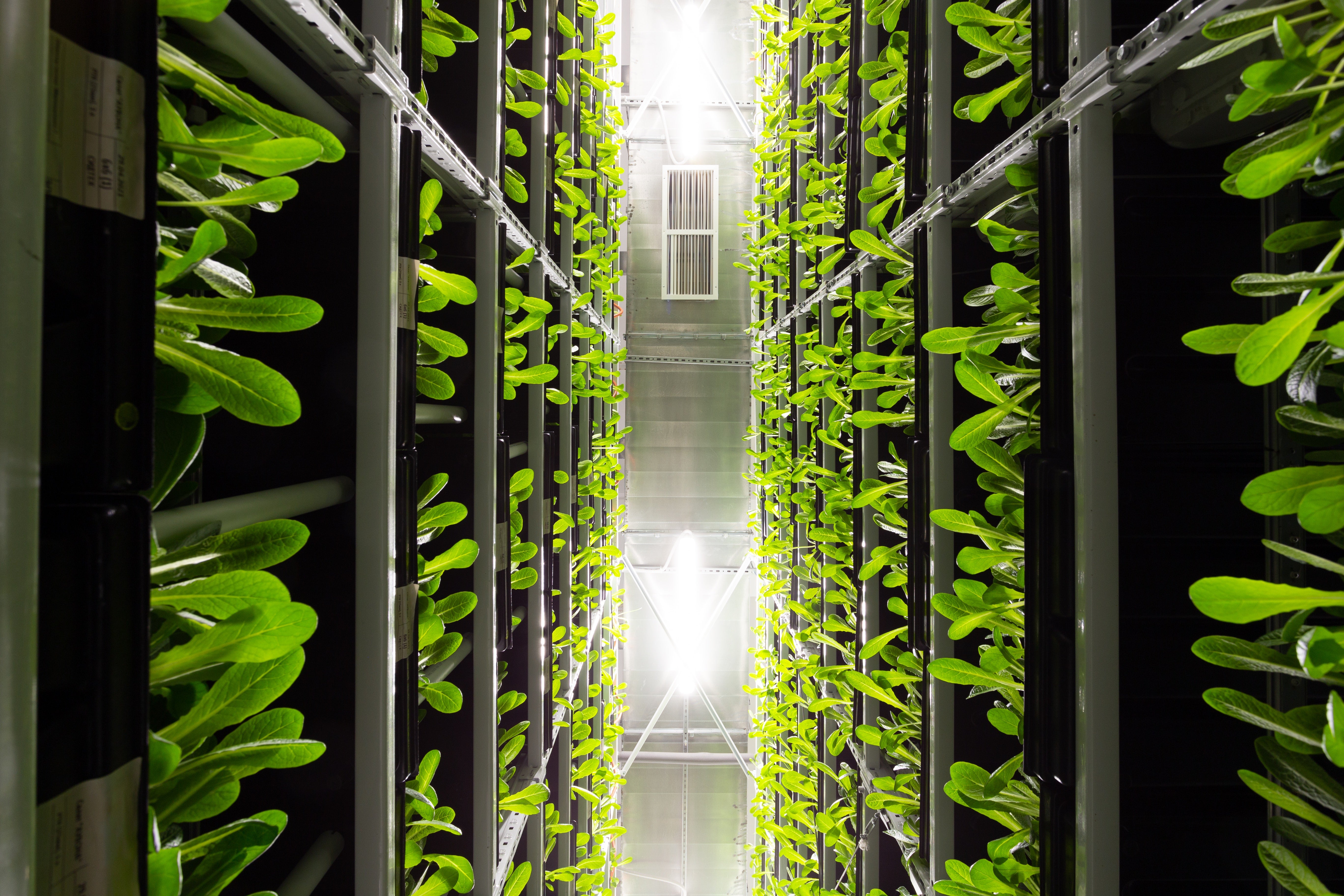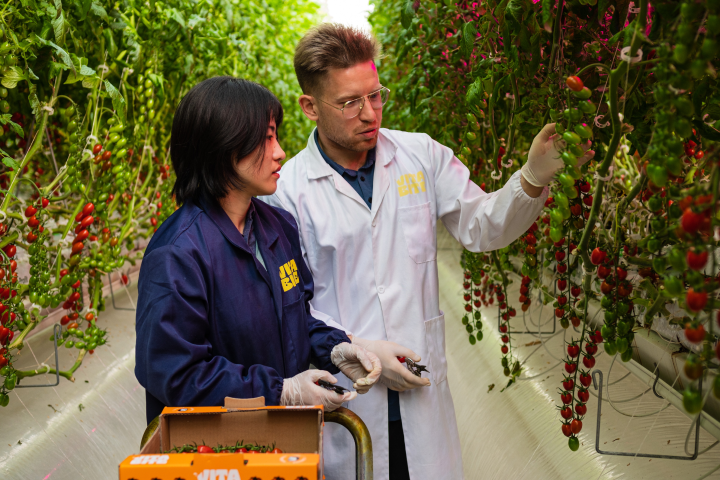Published 27 July 2023
How a Vertical Farm Works
A vertical farm is where people grow plants, like lettuce, tomatoes, and herbs, indoors. Instead of using soil (like a regular farm), they use hydroponics and aeroponics to grow the plants in water. The plants are stacked on top of each other in layers, so they can grow a lot of plants in a small space.
They also use special lights that look like the sun to help the plants grow and they keep the temperature and humidity just right so the plants are happy and healthy.
They can grow food all year round, no matter what the weather outside is like, and it's better for the environment because it uses less water and pesticides.
It's a great way for people who live in the city to have access to fresh produce because they can grow the food right where they live!
How a Vertical Farm works
No Soil Needed
Vertical farms use special methods to grow plants without soil.
One of the most popular methods is hydroponics, which means growing plants in water with nutrients added to it. Another method is aeroponics, where the plants' roots are misted with the nutrient-rich water solution instead of being submerged in it.

LED Lights
Vertical farms use LED lights that mimic sunlight to help the plants grow. This means that the plants can grow indoors, even in the middle of the night or on a cloudy day. LED lights are also energy-efficient and have a long lifespan, making them a good choice for vertical farms.

Temperature and Humidity Control
A vertical farm must have the right temperature and humidity to help the plants grow properly. The plants need a certain temperature range and humidity level to thrive. The farmers monitor the temperature and humidity and use special equipment to keep them at the right levels.

Automation
Many vertical farms use technology and automation to help manage the farm.
For example, they may use sensors to monitor the plants and make sure they are getting the right amount of light and water.
They also use cameras to inspect the plants and check for any signs of pests or disease.

Year-round Production
Asa vertical farm is indoors and temperature and light is controlled, it can produce plants all year round, regardless of weather conditions outside.

Sustainability
Vertical farming is more sustainable than traditional farming, it uses less water and pesticides, and it also reduces the carbon footprint of farming because it doesn't require large amounts of land.

In summary
A vertical farm is a special type of farm where they use technology and automation to grow plants in a controlled environment, they use less water and pesticides, they can produce all year round, and it's better for the environment.

